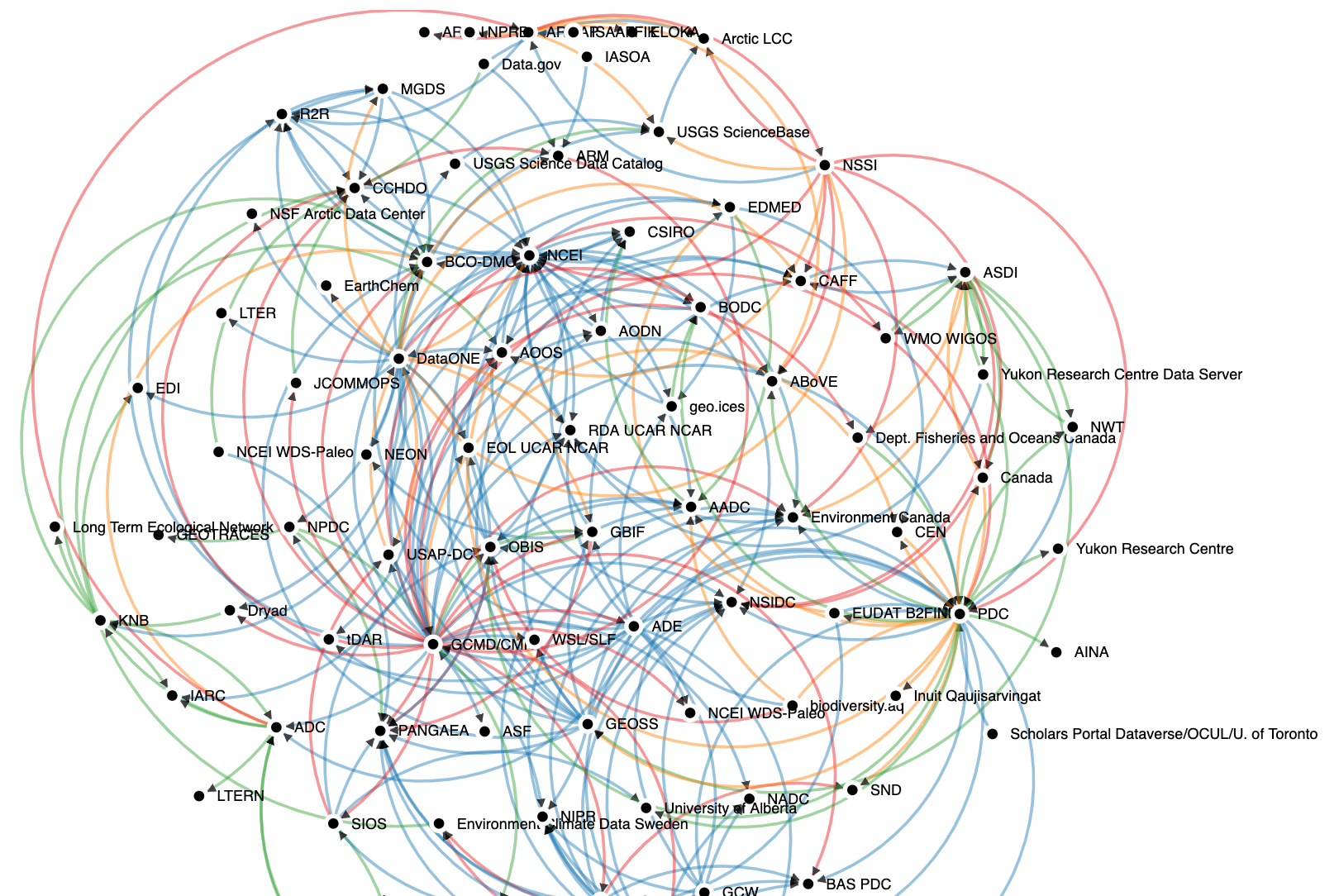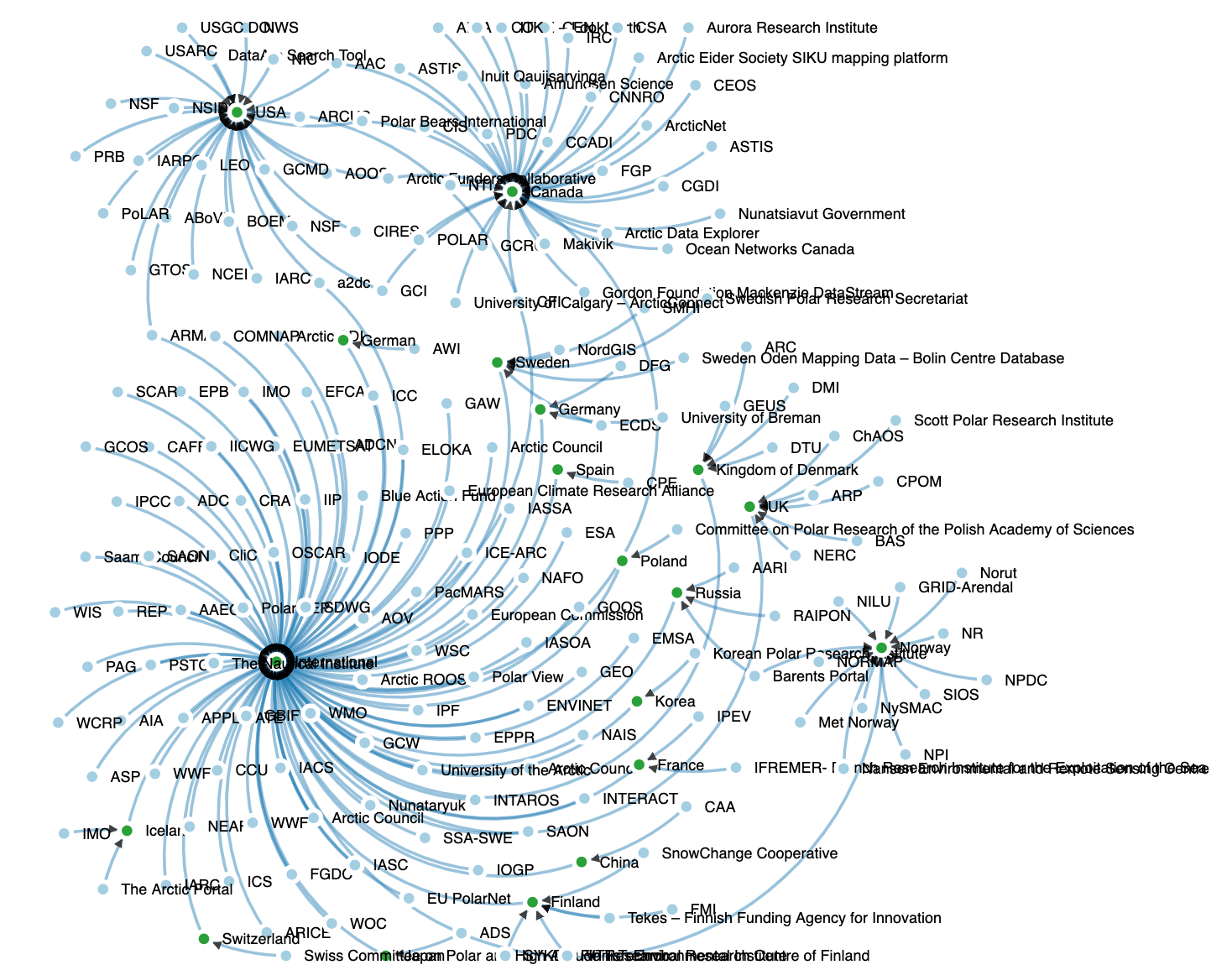Welcome to the Polar Data Ecosystem Graphing system!
Understanding polar environmental and social systems requires constant monitoring and access to the best available sources of data and information. This is particularly challenging in polar regions due to complex responses to significant environmental, economic and societal changes. Identifying, documenting and, understanding the polar components of the global information system will allow us to target gaps in information resources, as well as guide the ongoing development of the increasingly interconnected global information system in support of governance, research, livelihoods and myriad other applications.
The Mapping the Polar Data Ecosystem project[1] aims to use the established conceptual framework of information ecology (IE) as an analytical tool to help organize ideas and comprehend complexity of the Arctic and polar data ecosystem. Here we define a data ecosystem as a system of interrelated and interdependent human actors, institutions, norms and practices (including standards), technologies, information objects, relationships and the broader socio-technical environment in which it exists. This website provides interactive visualizations of different elements of the Arctic and Antarctic data ecosystem(s). The data presented here were collected by the Arctic Data Ecosystem Project, the Polar Data Discovery Enhancement Research (POLDER) Working Group, and participants in the Polar Data Planning summit (Boulder, USA, 2018). This initial prototype allows users to filter and visualize a database of nodes and relationships in the data ecosystem. As the database grows, additional analysis functions will be added.
Task lead: Peter Pulsifer, NSIDC/ELOKA, University of Colorado, USA


The Mapping the Arctic Data Ecoystem project is led by the Arctic Data Committee and is developed through partnership with other organizations.

The Arctic and polar data ecosystem is made up of many programs, projects, organizations and communities at many scales from international to local.
